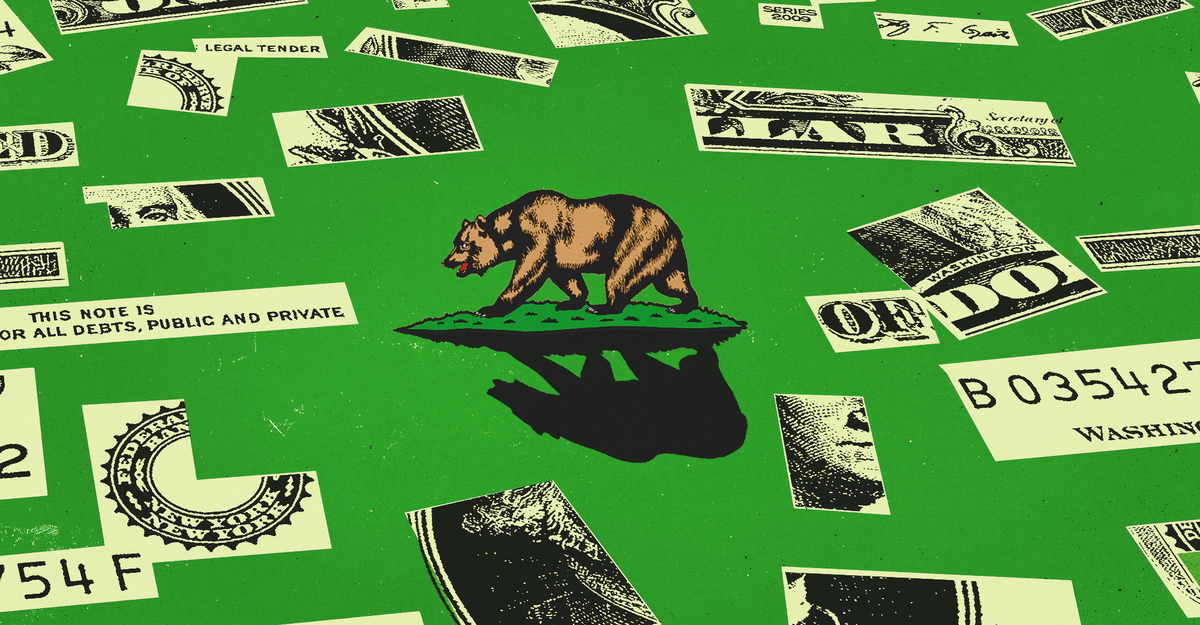That doesn’t mean raising the minimum wage had no negative consequences. Reich and his co-author, Denis Sosinsky, found that the higher minimum wage caused menu prices in California fast-food chains to rise by about 3.7 percent. That number is far lower than the “$20 Big Macs” that critics of the law warned of, but it’s still significant at a time when many consumers are deeply upset over the post-pandemic spike in food prices. Even so, Reich points out that this number pales in comparison with the 18 percent raise that the average fast-food worker received because of the new law. (The authors calculated that about 62 percent of the wage increase was absorbed through higher prices, while the rest was likely absorbed by a mix of reduced turnover and, crucially, lower profits for franchisees—hence the massive industry resistance.)
People complaining about fast food prices come across as entitled to me. How are you going to complain about underpaid staff making you a meal as quickly as possible when it’s not even healthy, nutritious nor good for the environment?
I just don’t understand why this is metric we measure things by. Are we that lazy that we can’t be bothered to make do without a burger sometimes?
From a purely consumer perspective, fast food prices increased to the price territory of superior fast casual and independent restaurants while being significantly lower quality.
How did this happen without the other options increasing prices at the same rate? McDonalds lost their value proposition and eaters adjusted.
People didn’t stop ordering burgers, but they can get a great one over McD’s for maybe 20% more cost.
That’s a good thing, though. They make shit food, pay people shit, charge nothing and do it fast. This is not really a business we need around. The only thing that benefits from McDonald’s is people scratching their impatience.
I say let them learn to be a real restaurant that makes, you know, food, or fuck off. Keep cranking those wages up.
It obviously doesn’t affect you, why are you bothering to care?
Are we that lazy that we can’t be bothered to make do without a burger sometimes?
Yes. 3/4 of America is fat to super fat.
Apparently for some people in food deserts, it’s their only viable option. Fast food prices going up means cost of living increased.
It’s simple.
“But how does this affect me, the protagonist of reality?”
Exactly, just don’t eat there.
then McDonalds goes under and nobody has a job!
…but.
How are we winning, people?
Apparently for some people in food deserts, it’s their only viable option. Fast food prices going up means cost of living increased.
It’s been declared a failure because the corporate overlords say so.
Yeah, the three percent rise likely would have happened either way. The prices are what the economy will tolerate not the cost of business. If the cost of business exceeds the price the economy will tolerate the business folds. This should make the businesses that are left over more efficient. The most efficient countries (highest GDP) tend to have higher wages.
Another perspective is that a 3% increase in prices - even without non-labor inflation - to pay people closer to a living wage reflects a more accurate cost of that dining experience. It could be that the public is subsidizing those restaurants’ labor through social programs that make up the difference vs a living wage
As you noted, with the real (or at least more realistic) cost of eating out reflected in the pricing, consumers will decide if that experience is worth it. And some businesses may close. And that’s called capitalism
Yup. Overwhelming success for the economy as it always is whenever you raise the minimum wage.
Yeah, there’s probably some level that’s too high, but $16 to $20 per hour is pretty clearly a long ways from it still.
Even the dishonest scoffing like ‘why not make it $500 per hour?!’ would function. All of the people doing work would be better-off. Whatever inflation is attributable to paying more people more money - it’s the opposite of printing money for the schmucks who already have all of the money. The new money goes to the masses. If that devalues each individual dollar, that’s offset by having more of them.
If you straight-up gave every person one million dollars, it would pull everyone toward a certain economic level. You’re only worse-off if you were above that level. 99% of Americans are not above that level.
That kind of radical change would transfer wealth to people who own real assets, such as land, factories, or corporations. I’m actually a bit dubious about it achieving the kind of outcome you describe.
How.
Basically: it kicks off significant inflation, which makes cash worthless and transfers wealth from lenders to borrowers.
For example, if you bought a house and have a mortgage, you can suddenly pay it off with now-worthless cash, and you still have the house. Corporations are mostly big borrowers, so they’ll end up able to pay off their debt in the same way, so the holders of their common stock end up with sudden huge profits.
As opposed to deflation, where corporate lenders also get more value? I don’t trust a prediction where either direction is bad for the same reason.
The inflation caused by giving most people a shitload of money is never going to cancel out how you’re giving most people a shitload of money. Not when it’s raising minimum wage from far-too-little to barely-enough. Not when you’re deciding everyone gets paid like a lawyer. Not when everyone wins the lottery simultaneously.
Even outright hyperinflation would simply flatten the curve, so long as the firehose of devalued currency is spraying across the whole population.
Sudden very large changes to price levels are really damaging regardless of direction. Modest inflation, say 3% per year, seems to benefit people the most
deleted by creator






